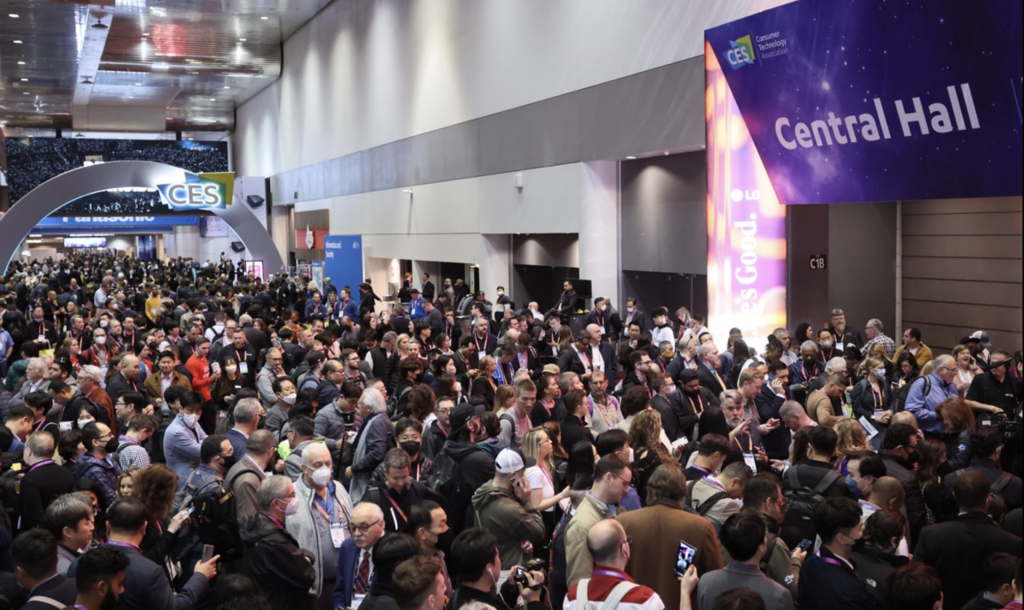
Sustained investment in technology across select Asian markets has made the region an innovation force to be reckoned with: it now accounts for more than half the world’s patents, according to the International Monetary Fund (IMF). China is fast catching up with the US in terms of innovation and advanced industry capabilities. Region-wide, technological innovation is increasingly seen as a priority. By 2027, IDC expects 60% of market leaders to have implemented programs to systemize it.
Asia’s importance as an innovation hub for everything from AI to sustainability, digital health, electric vehicles, smart homes, transportation and mobility was exemplified by CES’s first event held in Asia since the pandemic, a briefing in Seoul to ride on the momentum of national and regional technology enterprises, innovation and initiatives and drive participation in CES in Las Vegas in January.
Looking ahead to the event, we anticipate a strong presence from Asian industry giants as they use CES as the platform to showcase their technology to the world. In 2023, the event clocked over 115,000 attendees and 4,800 global media. The four-day agenda attracted over 500 exhibitors from Korea. CES 2024 will draw more than 120,000 global attendees and some 3,500 exhibitors from around the world.
Asia’s technology growth story is not just about Asian brands, though. Western multinationals cannot overlook the opportunity to be part of it. By directing their focus to Asia, they can leverage the growing dynamic technology ecosystem and benefit from the continuous growth of Asia’s economies. Amid global turbulence, these markets continue to offer immense opportunities for tech companies, with sizable populations and a rising middle class driving increased consumer demand for technology products and services.
Government and industry leaders unite to drive technology renaissance
Governments in Asia recognize the crucial role of technology in stimulating economic growth and overcoming global challenges. Global technology associations and platforms like the Consumer Technology Association (CTA), owner and producer of CES, play a crucial part. In advance of the highly anticipated CES event in Las Vegas, the Hong Kong Trade Development Council invited Hong Kong startups to participate in the Eureka Park exhibition, the startup hub at CES that gathers innovative startups from around the world under one roof. This is a place where they can meet investors, other startup founders and source potential partners to help scale their business. Asian governments also co-led pavilions, showcasing the collective contribution to technology and innovations of their respective markets.
Taiwan has prioritized research and development in semiconductors, AI supercomputing, sustainable technology, and service innovation. Notably, industry giant ASML collaborates closely with Asian semiconductor companies, empowering them to bolster their technological capabilities. In Japan, the government actively explores emerging technologies that help to enhance social well-being, as demonstrated by the Society 5.0 initiative. Business investments are directed towards science, technology, digital health, 5G infrastructure, and green tech, driving a comprehensive digital transformation agenda.
Unleash Asia’s ample tech talent reserves
Asia stands as a powerhouse of highly skilled professionals across diverse fields in technology. For tech companies, establishing a presence in the region helps them to tap into this rich talent pool, fueling innovation and driving business growth. Asian countries significantly invest in educational initiatives, nurturing a strong workforce equipped with future-ready skills, further enhancing Asia’s appeal to tech companies seeking top-tier talent.
India has emerged as a global hub for IT services and software development, while Singapore has positioned itself as a leading fintech and biotech destination. Asia is a diverse region with distinct cultural nuances, consumer preferences, and business practices. By diving deep into the Asia talent pool, MNCs can benefit from the expertise of local professionals who possess an intimate understanding of regional culture, market dynamics, and customer behaviors. This localized knowledge proves invaluable in developing tailored products and services, crafting effective marketing strategies, and building robust relationships with Asian customers and partners.
Prioritize markets for effective expansion
Asia is a complex and unique region that resists categorization as a single market; prioritization is of utmost importance and companies should approach their chosen individual markets strategically. It is highly advisable to establish a strong, targeted presence before expanding across Asia as a whole. In other words, it is far better to channel a limited budget into getting things right in one or two markets than to stretch it across 10 without proper localization.
Asia’s technology prospects are big enough for everyone with a strong proposition. At the same time, Western brands must be conscious not to cede opportunities to local players by treating the region as homogenous. This underscores the need for localized communications as well as business strategy. It pays to remember that Asian consumers (including those in the B2B space) will increasingly choose the company that appears to best understand them — not simply the one that is best known.

